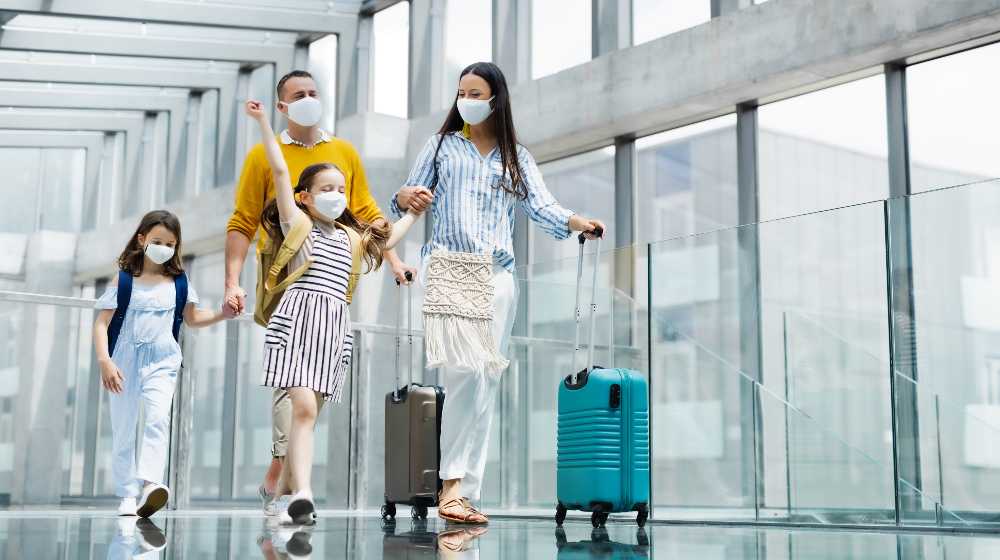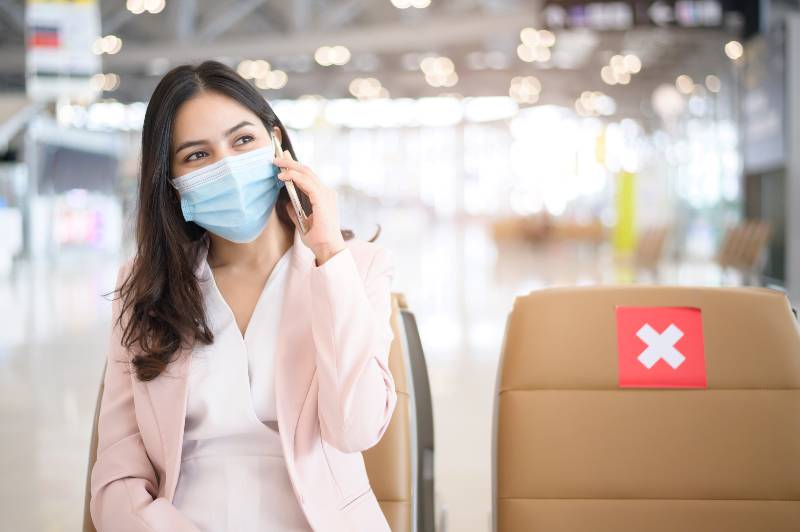COVID-19
New COVID Rules On International Travelers Will Start Monday

New rules covering international air travelers arriving in the United States will begin on Monday, December 6. The new rules will require international travelers to submit a negative COVID-19 test within one day of travel. The negative test will allow the traveler to enter the United States.
RELATED: Are Vaccine Mandates Legal For Travelers?
New Rules For International Travelers To Take Effect Monday, December 6

US officials confirmed the new rules yesterday. This replaces the current rule of requiring vaccinated international travelers to present a negative COVID test result taken within three days of departure.
Unvaccinated international travels must submit a negative COVID-19 test within a day of departure.
The new rules will do away with the vaccination status of the passenger. Last Thursday, the Centers for Disease Control and Prevention (CDC) said that international travelers will only need to submit a negative pre-departure COVID–19 test. Passengers should take the test the day before they board their flight going to the United States.
Tighter Timeline
Even as the new rules dropped the vaccination status, the test requirements feature a shorter time frame. This tighter timeline “provides an added degree of public health protection as scientists continue to assess the Omicron variant,” the White House said.
The federal government issued a factsheet that sets the new rules for air travel.
In addition, airlines expect the CDC to give them a three-day grace period to allow international travelers to return to the US bringing test results outside the one-day test window.
The administration is also looking into the possibility of granting temporary exemptions. Around two dozen countries have limited access to same-day testing. However, these exemptions will only last a week while officials finalize the details.
Ban On 8 African Countries With Omicron Cases
Last Monday, the White House announced that it will place a travel entry ban on eight southern African countries. These countries reported cases of patients infected with the Omicron variant.
The US, fearing the spread of Omicron in the already-overwhelmed US healthcare system, issued the ban. However, the US remains open to other non-African countries which also reported cases of Omicron.
The eight countries include South Africa, the country whose scientists announced the presence of the Omicron variant. Others include Botswana, Zimbabwe, Namibia, Lesotho, Eswatini, Mozambique, and Malawi.
The ban means that residents or travelers from these countries cannot travel to the US if they stayed in any of the countries within the last 14 days.
Is a Travel Ban Effective?
Meanwhile, top US infectious diseases official Dr. Anthony Fauci said that he’s looking at the travel restrictions as temporary measures.
White House Press Secretary Jen Psaki seconded the motion, saying she expects the bans to lift once the US learns more about Omicron.
However, this begs the question: do travel bans work? Some say that the travel restrictions can help contain the newest COVID-19 strain.
However, many think that the ban unnecessarily punishes a region that duly reported the strain to the World Health Organization. Besides, the discovery by South Africa doesn’t necessarily mean the strain originated from there.
More importantly, according to Saad Omer, director of the Yale Institute of Global Health, it might be too late. Once scientists discover a new strain, it’s more likely that this is already flourishing in the wild.
As such, travel bans do not serve any purpose. “There is very little utility of these kinds of bans,” Omer said. He added that the “horse has probably left the barn.”
Watch the CNBC Television news video reporting that the US braces for Omicron variant with new travel restrictions:
What do you think of the new rules for international travelers? Do you think it’s better, or it’s worse? Let us know what you think. Share your thoughts below.















